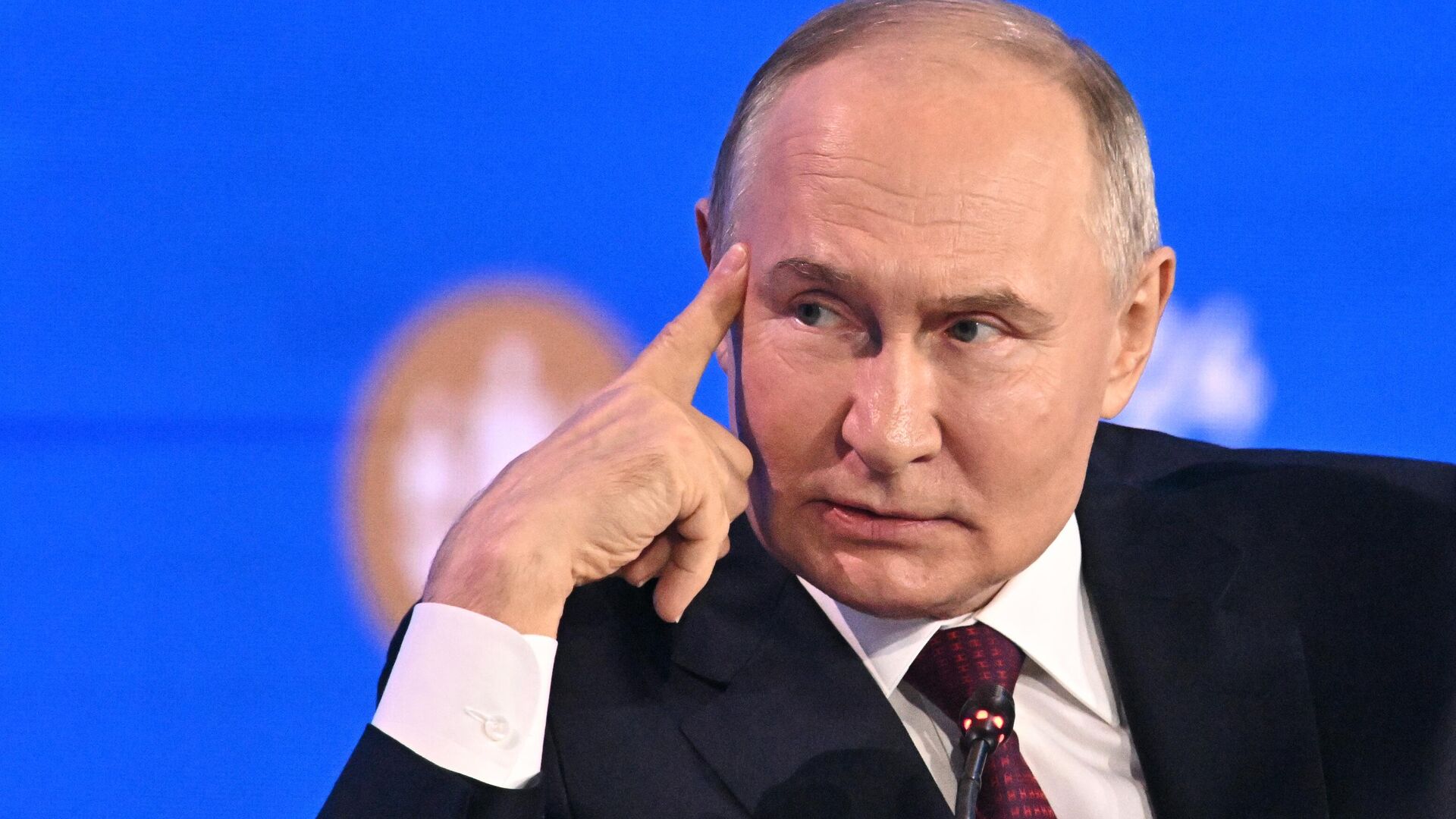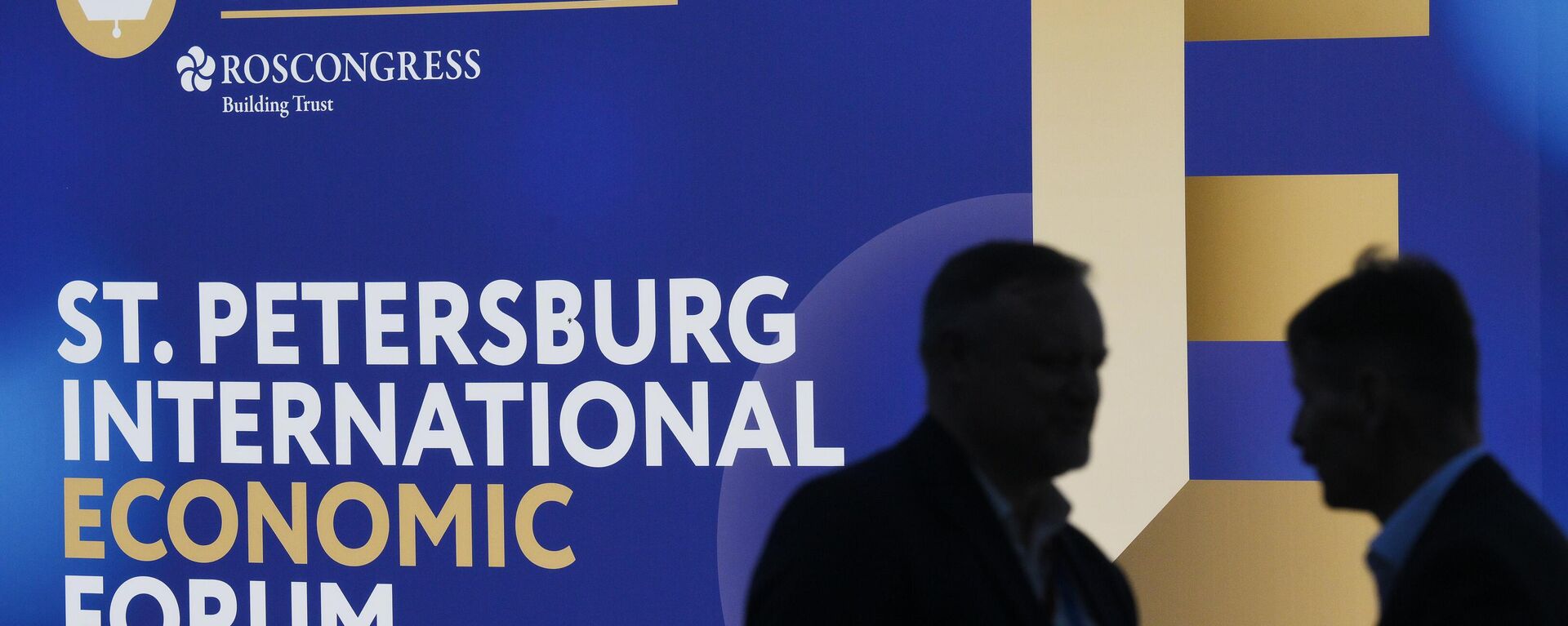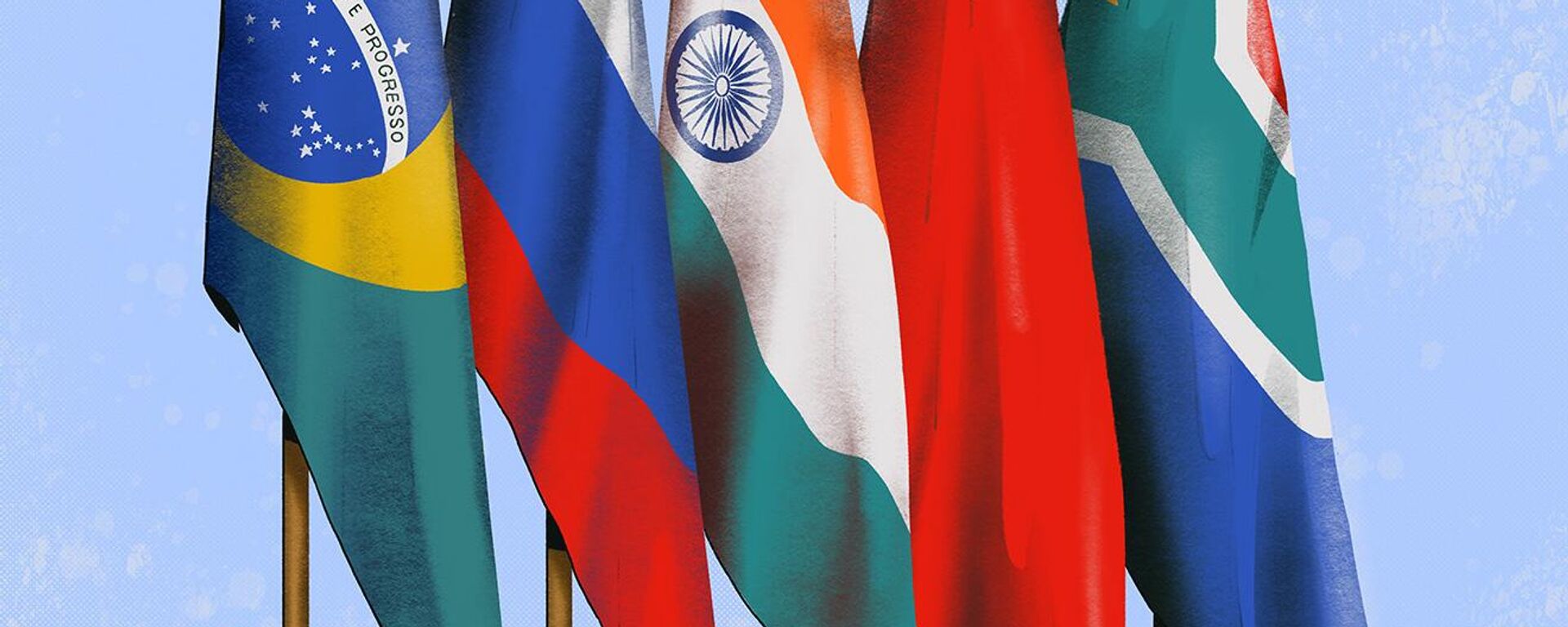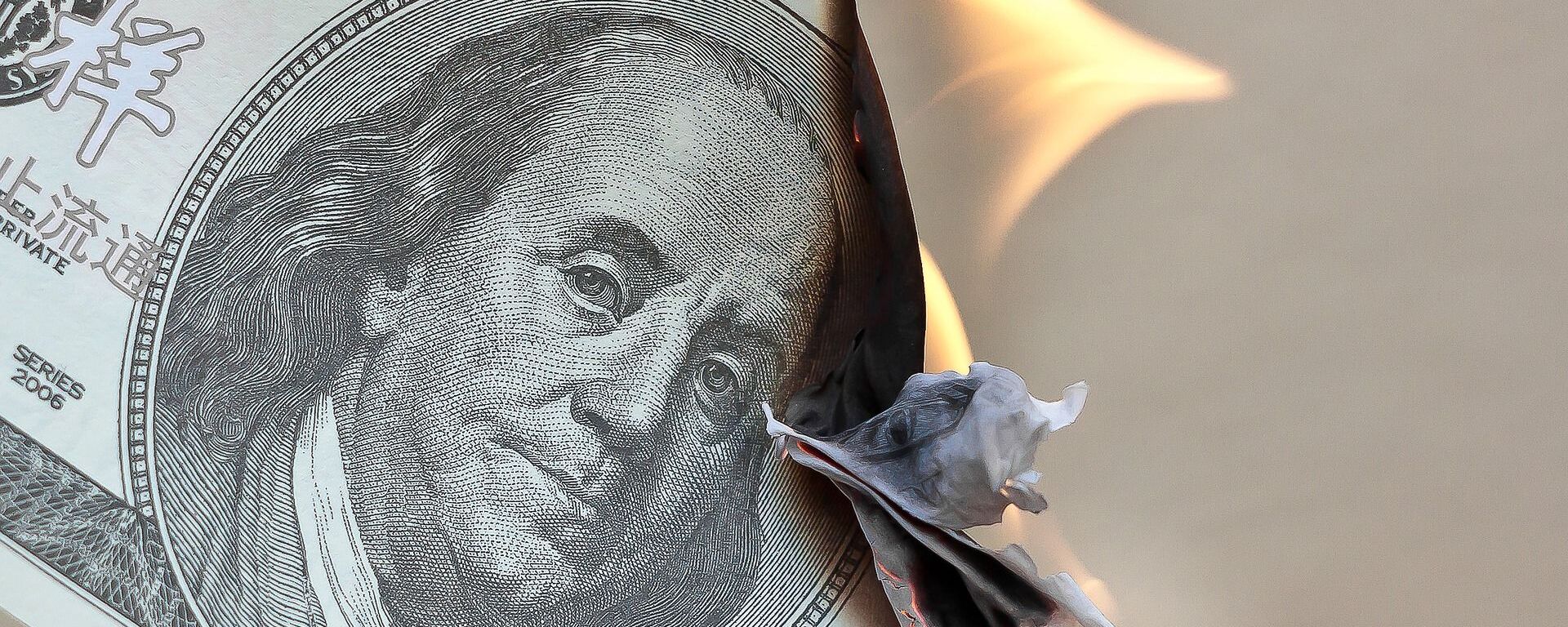https://sputnikglobe.com/20240607/putins-4d-chess-west-losing-war-on-four-fronts-after-picking-fight-with-russia-1118851297.html
Putin’s 4D Chess: West ‘Losing’ War on Four Fronts After Picking Fight With Russia
Putin’s 4D Chess: West ‘Losing’ War on Four Fronts After Picking Fight With Russia
Sputnik International
Speaking at the plenary session of the St. Petersburg International Economic Forum, President Putin outlined Russia’s development priorities through the year 2030, and highlighted the self-sabotaging role the West has played in undermining its own hegemony around the globe. Sputnik asked experts from Europe, Asia and Africa for their key takeaways.
2024-06-07T17:52+0000
2024-06-07T17:52+0000
2024-06-07T18:11+0000
analysis
russia
china
vladimir putin
brics
world bank
northern sea route
spief 2024
economy
trade
https://cdn1.img.sputnikglobe.com/img/07e8/06/07/1118848233_0:150:3107:1898_1920x0_80_0_0_aab0b185f91931e44540311b61112a19.jpg
Tens of thousands of sanctions leveled against Russia by Western countries have paradoxically failed to crush the Russian economy, and on the contrary the country is seeing economic growth at rates almost unprecedented in its post-Soviet history.But Russia won’t rest on its laurels, Putin said, noting that the difference in GDP remains “small,” that other countries are not standing in one place, and that “leadership positions need to be constantly confirmed and strengthened.”To that end, Putin outlined an economic growth and investment strategy over the next six year period, including, among other things, a drive toward increased self-sufficiency, a substantial jump in capital investment, changes to the tax code, and a renewed push to attract private investment.Highlighting Russia’s reorientation in trade and payments away from the West toward the developing world, the Russian president said the West had “been dealt a significant blow,” largely “by Western countries themselves,” with countries boosting trade in currencies other than the dollar and the euro.At the same time, Putin said, the hegemon of the Western economic order, the United States, faces serious financial straits which would be even more serious were it not for its continued plunder of developing nations.He added that America’s gargantuan debt, which runs in the tens of trillions of dollars, is not backed by any tangible assets.Losing a War on Four Fronts“The growth in the Russian economy (outpacing Western economies) is spectacular and it shows that the 15,000 sanctions applied by the West have blown back on them,” British academic and author Rodney Atkinson told Sputnik, offering his key takeaways from Putin’s speech.To make matters worse, the political and economic commentator stressed that the hostility with which the West has responded to the metamorphosis of a unipolar world order into a multipolar one has only made matters worse for itself thanks to its selfish and short-sighted policy elites.Atkinson emphasized the madness of the West’s logic of slapping sanctions against a country the size of Russia with its abundance of food, mineral and energy resources. What’s worse (for the West) is that Moscow has been trailblazing a path to independence which can be emulated by other nations.“Import substitution by Russia and the unwillingness of Western companies to leave Russia (1,600 international companies have left Russia since 2022 but there are more than 2,100 left) and the substitution of national currencies for dollar-based trade (i.e. rupee, yuan, ruble) all show the Global South that there are alternatives to a Western-based system based on sanctions,” Atkinson said.The More the West Tightens Its Grip, the More Nations Will Slip Through Its FingersThe world is on an irreversible path to multipolarity, and no amount of effort by the West, including violent means, can reverse this trend, says Professor Alexis Habiyaremye, a political analyst and senior researcher at the University of Johannesburg’s School of Economics, commenting on Putin’s vision of a Russia committed to being a part of a multipolar world.The West has traditionally also “used the Bretton Woods institutions to dominate and discipline developing countries,” according to the academic, but “with the emergence of alternative sources of development finance (e.g. the Asia Infrastructure Investment Bank or the New Development Bank), the financial grip on developing countries has been loosened as well. The significance of the West in the world economy and in the world population is in inexorable decline, and no matter how much violence they are deploying to keep their domination, the world has already changed. The Global South won’t accept abusive and traumatic domination, and it is already showing it in different parts of the world,” the observer emphasized.That said, “for counties in the US ‘backyard’, such as Bolivia, Venezuela or Cuba, it will remain extremely difficult to extricate themselves from the stifling influence from Washington. That is why they need more support from the other emerging poles,” he added.West Losing Goose That Laid the Golden EggsThe United States, Europe and their allies really have no one but themselves to blame for their declining share of global power and influence, John Gong, a professor of economics at Beijing’s University of International Business and Economics, told Sputnik, commenting on Putin’s speech.“There are several options emerging on the horizon,” according to the observer, from the use of local currencies, discussions of a BRICS-based alternative currency, and digital sovereign currencies.China is interested in the creation of alternative payment infrastructure from multiple standpoints, Gong emphasized, including from the desire to maintain normal trading relationships in the face of the West’s unilateral sanctions not just against Russia, but other countries, like Iran.Add to this Beijing’s interest in promoting and internationalizing the yuan. “In the World Bank special drawing rights basket it ranks just behind the dollar, just behind the euro, and is already cutting the role of the British pound and the Japanese yen. So that’s also an agenda very much in China’s interest,” the academic noted.‘Big Opportunities’ for World's Biggest EconomyRussia’s pivot away from the West toward the East as highlighted by Putin opens “big opportunities” for China and other rising powers, Gong stressed.The buildout creates other opportunities, too, including the new Northern Sea Route transport corridor via the Arctic, Gong said.“From China's perspective this represents a viable, now technologically viable, and I would say economical transportation route to Europe and other parts of the world. We all understand the turmoil in the Middle East is causing for a large trading nations like China. The unsafe routes in the Red Sea are cutting to China's shipping volume and also jacking up shipping costs. And I think this Northern Arctic shipping route provides a viable and also economic means, for much of the year,” the academic summed up.
https://sputnikglobe.com/20240607/live-updates-plenary-session-in-full-swing-at-spief-2024--1118828231.html
https://sputnikglobe.com/20240607/preliminary-work-on-brics-common-currency-ongoing-1118849025.html
https://sputnikglobe.com/20240605/is-us-hegemony-a-paper-tiger-1118771302.html
https://sputnikglobe.com/20240513/de-dollarization-bombshell-the-coming-of-brics-decentralized-monetary-ecosystem-1118409748.html
https://sputnikglobe.com/20231221/cargo-traffic-via-northern-sea-route-reaches-record-35mln-tonnes-rosatom-subsidiary-1115730407.html
russia
china
Sputnik International
feedback@sputniknews.com
+74956456601
MIA „Rossiya Segodnya“
2024
News
en_EN
Sputnik International
feedback@sputniknews.com
+74956456601
MIA „Rossiya Segodnya“
Sputnik International
feedback@sputniknews.com
+74956456601
MIA „Rossiya Segodnya“
is russia winning proxy war with west, who's winning the russia-nato proxy war, is russian economy growing or shrinking
is russia winning proxy war with west, who's winning the russia-nato proxy war, is russian economy growing or shrinking
Putin’s 4D Chess: West ‘Losing’ War on Four Fronts After Picking Fight With Russia
17:52 GMT 07.06.2024 (Updated: 18:11 GMT 07.06.2024) Speaking at the plenary session of the St. Petersburg International Economic Forum, President Putin outlined Russia’s development priorities through the year 2030, and highlighted the self-sabotaging role the West has played in undermining its own hegemony around the globe. Sputnik asked experts from Europe, Asia and Africa for their key takeaways.
Tens of thousands of sanctions
leveled against Russia by Western countries have paradoxically failed to crush the Russian economy, and on the contrary the country is seeing economic growth at rates almost unprecedented in its post-Soviet history.
“We have set a goal to enter the top four largest economies in the world,” President Putin
said during his speech at SPIEF on Friday. “Just last week the World Bank made additional calculations and put Russia in fourth place. We found ourselves ahead of Japan. Russia ranks fourth in terms of purchasing power parity GDP.”
But Russia won’t rest on its laurels, Putin said, noting that the difference in GDP remains “small,” that other countries are not standing in one place, and that “leadership positions need to be constantly confirmed and strengthened.”
To that end, Putin outlined an economic growth and investment
strategy over the next six year period, including, among other things, a drive toward increased self-sufficiency, a substantial jump in capital investment, changes to the tax code, and a renewed push to attract private investment.
Highlighting Russia’s reorientation in trade and payments away from the West toward the developing world, the Russian president said the West had “been dealt a significant blow,” largely “by Western countries themselves,” with countries boosting trade in currencies other than the dollar and the euro.
At the same time, Putin said, the hegemon of the Western economic order, the United States, faces serious financial straits which would be even more serious were it not for its continued plunder of developing nations.
“They have a current account deficit of a trillion dollars. What is this? I think, everyone will understand what I’m talking about. This is neocolonialism in its modern iteration. Using the monopoly position of the dollar, the United States consumes a trillion dollars a year more than it produces. They seem to be pumping out these resources from other countries,” Putin said.
He added that America’s gargantuan debt, which runs in the
tens of trillions of dollars, is not backed by any tangible assets.
Losing a War on Four Fronts
“The growth in the Russian economy (outpacing Western economies) is spectacular and it shows that the 15,000 sanctions applied by the West have blown back on them,” British academic and author Rodney Atkinson told Sputnik, offering his key takeaways from Putin’s speech.
“The West is losing four wars in one - economically (in trade and debt), financially (de-dollarization and international payment systems), militarily (in Ukraine in battle and in a comparison of weapons systems) and geopolitically with a massive loss of influence around the world,” Atkinson explained.
To make matters worse, the political and economic commentator stressed that the hostility with which the West has responded to the metamorphosis of a unipolar world order into a multipolar one has only made matters worse for itself thanks to its selfish and short-sighted policy elites.
“Even before the 20-year expansion towards Russia and the 2014 Maidan-instigated war, European imperial ambitions and US neocon aggression were unpopular. Now that the Global South has witnessed recent events and the BRICS offer an alternative and the US has descended into record debt and industrial weakness, it is very difficult for the West to recover its influence. Plagued by geopolitical ignorance, financially irresponsible policies and weak leadership, the US and its allies may not even survive as one of the poles of the multi-polar world,” Atkinson said.
Atkinson emphasized the madness of the West’s logic of slapping sanctions against a country the size of Russia with its abundance of food, mineral and energy resources. What’s worse (for the West) is that Moscow has been trailblazing a path to independence which can be emulated by other nations.
“Import substitution by Russia and the unwillingness of Western companies to leave Russia (1,600 international companies have left Russia since 2022 but there are more than 2,100 left) and the substitution of national currencies for dollar-based trade (i.e. rupee, yuan, ruble) all show the Global South that there are alternatives to a Western-based system based on sanctions,” Atkinson said.
The More the West Tightens Its Grip, the More Nations Will Slip Through Its Fingers
The world is on an irreversible path to multipolarity, and no amount of effort by the West, including violent means, can reverse this trend, says
Professor Alexis Habiyaremye, a political analyst and senior researcher at the University of Johannesburg’s School of Economics, commenting on Putin’s
vision of a Russia committed to being a part of a multipolar world.
“Western countries have long relied on their technological advance and their superiority in the use of violence to impose their domination on other countries,” Habiyaremye told Sputnik. “With the considerable technological catch up observed since the second half of the 20th century, but above all, with the technological sophistication of the Russian defense industry, Western countries are no longer able to impose their domination without challenge.”
The West has traditionally also “used the
Bretton Woods institutions to dominate and discipline developing countries,” according to the academic, but “with the emergence of alternative sources of development finance (e.g. the Asia Infrastructure Investment Bank or the New Development Bank), the financial grip on developing countries has been loosened as well. The significance of the West in the world economy and in the world population is in inexorable decline, and no matter how much violence they are deploying to keep their domination, the world has already changed. The Global South won’t accept abusive and traumatic domination, and it is already showing it in different parts of the world,” the observer emphasized.
The multipolar “new world order” being constructed by Russia and other BRICS countries, “by providing alternative poles of economic and diplomatic power, will certainly benefit countries from the Global South and lower the pressure of the current hegemon,” Habiyaremye said.
That said, “for counties in the US ‘backyard’, such as Bolivia, Venezuela or Cuba, it will remain extremely difficult to extricate themselves from the stifling influence from Washington. That is why they need more support from the other emerging poles,” he added.
West Losing Goose That Laid the Golden Eggs
The United States, Europe and their allies really have no one but themselves to blame for their declining share of global power and influence, John Gong, a professor of economics at Beijing’s University of International Business and Economics, told Sputnik, commenting on Putin’s speech.
“I think the use of rupee, as well as China's own currency, the yuan, for trade between China and Russia, is something of Washington’s creation, actually. The sanctions imposed on Russia, the threat of secondary sanctions on Chinese parties are creating this alternative payment and trade settlement system. I think this is also part of a broader trend that in the entire global trade settlement arena, the dollar's world is starting to get diminished, though quite gradually, Dr. Gong said, characterizing the process as a “dam” that’s “showing signs of cracking.”
“There are several options emerging on the horizon,” according to the observer, from the use of local currencies, discussions of a BRICS-based alternative currency, and digital sovereign currencies.
China is interested in the creation of alternative payment infrastructure from multiple standpoints, Gong emphasized, including from the desire to maintain normal trading relationships in the face of the West’s unilateral sanctions not just against Russia, but other countries, like Iran.
Add to this Beijing’s interest in promoting and internationalizing the yuan. “In the World Bank special drawing rights basket it ranks just behind the dollar, just behind the euro, and is already cutting the role of the British pound and the Japanese yen. So that’s also an agenda very much in China’s interest,” the academic noted.
‘Big Opportunities’ for World's Biggest Economy
Russia’s pivot away from the West toward the East as highlighted by Putin opens “big opportunities” for China and other rising powers, Gong stressed.
“I could imagine, for example, that infrastructure investment in Russia offers tons of opportunities for Chinese companies, Chinese companies may be participating, Chinese companies may be providing vital equipment, materials, products that could be used in this infrastructure buildout. So I think, cooperation between the two sides has a lot of potential…This is a long-term strategy. It's not going to be just transitional, it's going to stay there for many decades to come,” he said.
The buildout creates other opportunities, too, including the new Northern Sea Route transport corridor via the Arctic, Gong said.
“From China's perspective this represents a viable, now technologically viable, and I would say economical transportation route to Europe and other parts of the world. We all understand the turmoil in the Middle East is causing for a large trading nations like China. The unsafe routes in the Red Sea are cutting to China's shipping volume and also jacking up shipping costs. And I think this Northern Arctic shipping route provides a viable and also economic means, for much of the year,” the academic summed up.
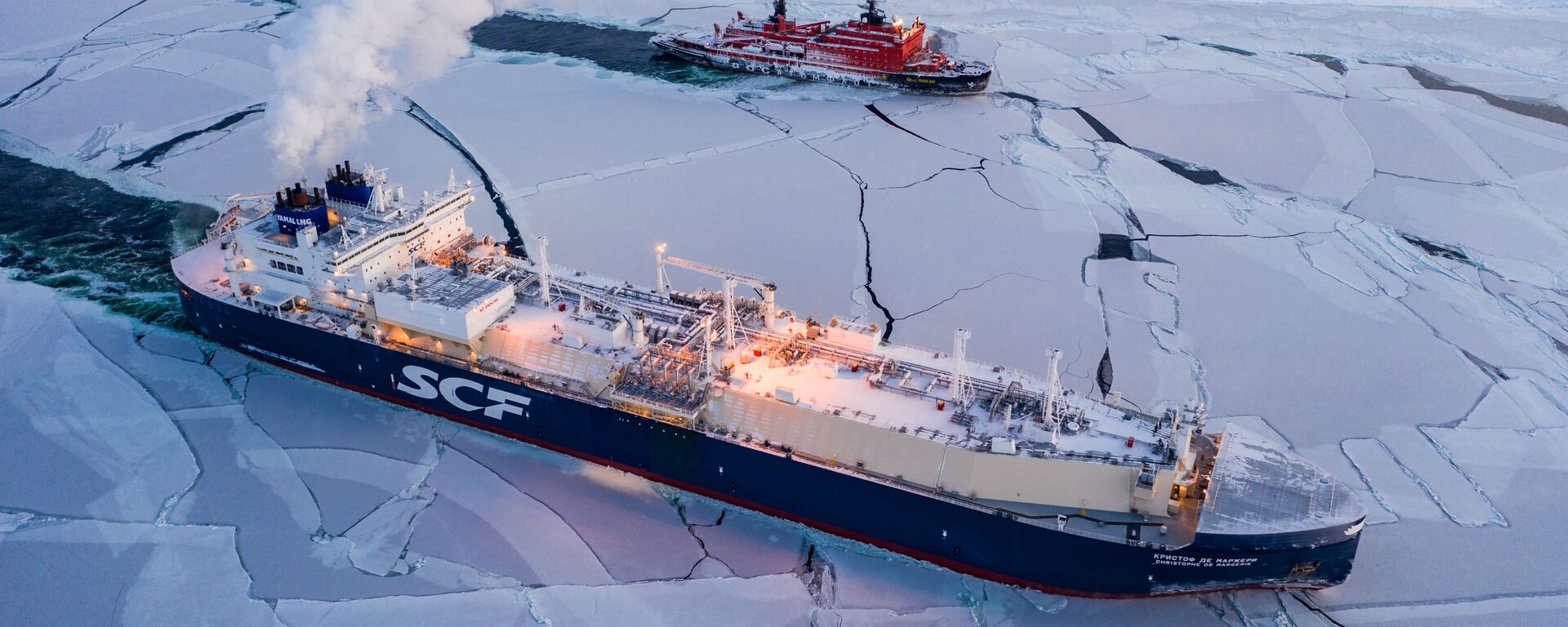
21 December 2023, 16:04 GMT
